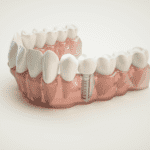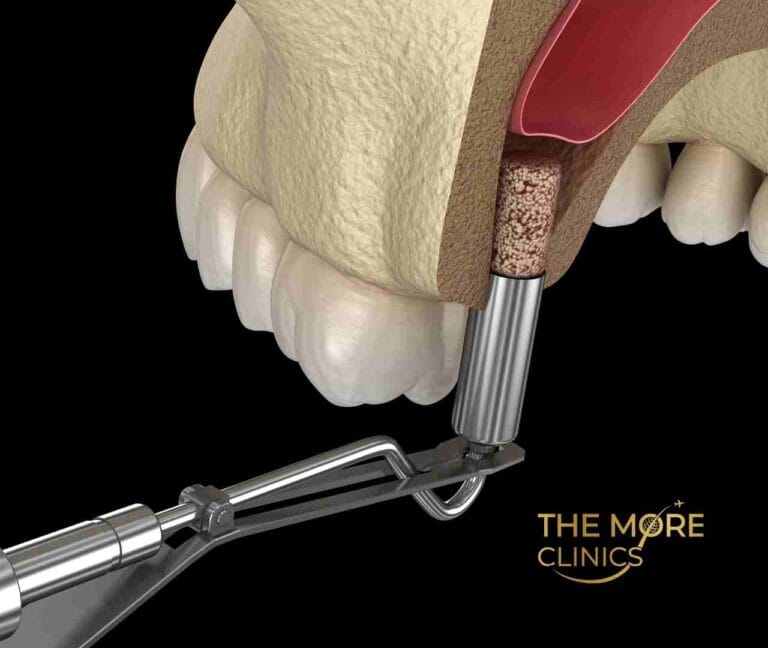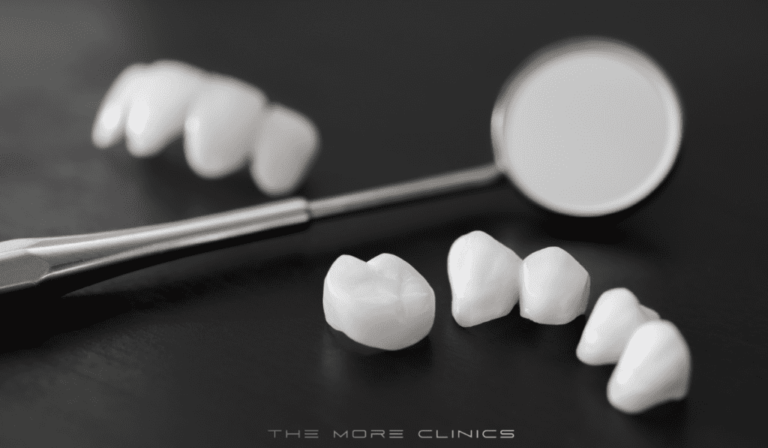How Long Does an Implant Last? Dental Implants Lifespan
Dental implants are considered one of the most reliable and long-lasting solutions for replacing missing teeth. Whether it’s from tooth loss, decay, or trauma, a dental implant offers a permanent way to restore your smile and improve oral health. However, you might be wondering, how long do dental implants last? This comprehensive guide will explore dental implants lifespan, factors that contribute to their longevity, potential reasons for tooth implant failure, and what to do if failed dental implant symptoms and options to treat. Let us learn more on how long does an implant last.
A dental implant consists of three primary components that work together to replace a missing tooth:
- Implant: A titanium or ceramic screw-like structure placed into the jawbone, acting as an artificial tooth root.
- Abutment: A connector that attaches the implant to the prosthetic tooth.
- Crown: The visible part of the implant, custom-made to match your natural teeth for seamless appearance and functionality.

How Long Does an Implant Last?
Dental implants are designed to last a lifetime, but their longevity depends on several factors, such as proper care, lifestyle choices, and the health of your jawbone.
- The implant itself (the titanium or ceramic post) is usually permanent due to its integration with the jawbone through osseointegration.
- The crown or prosthetic tooth, however, may need replacement after 15 to 20 years, as regular wear and tear may result in damage or discoloration.
Clinical studies indicate an impressive 90–95% success rate for dental implants over a 10-year period. Many patients experience even longer-lasting results with proper care and maintenance.
Tooth Implant Failure: Why Do Dental Implants Fail?
While dental implants have a high success rate, they can still fail in rare cases. Some possible reasons for tooth implant failure include:
- Infection at the implant site due to poor oral hygiene or underlying health issues.
- Insufficient bone density or quality, which can affect osseointegration potentially resulting failed implant due to bone loss.
- Smoking and tobacco use, which can hinder proper healing and increase the risk of infection. (*)
- Certain medications or medical conditions that may interfere with healing or compromise immune function.
- Radiotherapy in the head and neck region, which can damage tissues and reduce blood supply to the implant site.
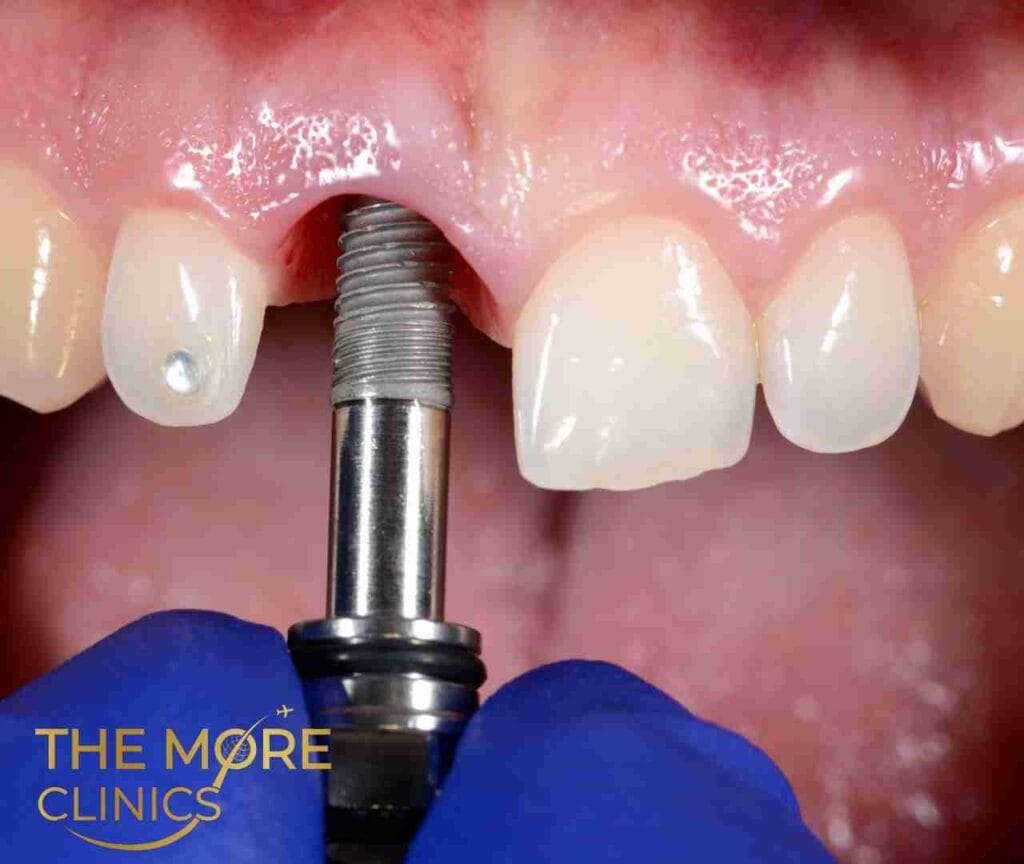
Factors Effecting Dental Implants’ Lifespan
How long does an implant last can be effected by several factors, including:
Oral Hygiene
Maintaining excellent oral hygiene is crucial for avoiding periodontal disease – a bacterial infection that can weaken the gum and bone structure around the implant.
To protect implants:
- Brush at least twice a day.
- Floss daily to prevent plaque buildup.
- Use antimicrobial mouthwash as recommended by your dentist.
- Visit your dentist for regular cleanings every six months.
Smoking
Smoking has been linked to higher rates of implant failure. Studies show that implant success rates are 11% lower in smokers compared to non-smokers. Smoking impairs blood flow, slowing healing, and increases the risk of gum disease.
Jawbone Health: Failed Implant Due to Bone Loss
Jawbone health matters a lot!
Strong jawbone density is essential for implant stability. Bone loss over time due to gum disease, osteoporosis, or other conditions can affect an implant’s foundation. Patients who undergo bone grafting or sinus lifts before their implant procedure often see enhanced longevity.
Read our post to prevent result called failed implant due to bone loss.
Medications and Medical Conditions
Some medications, such as steroids or chemotherapy drugs, can interfere with the healing process and increase the risk of implant failure.
Teeth Grinding (Bruxism)
Unconscious grinding or clenching can put excessive pressure on the implant, potentially causing fractures or loosening. If you grind your teeth, your dentist may recommend wearing a custom night guard for protection.
General Health Conditions
Chronic conditions like diabetes, weakened immunity, or osteoporosis may increase the risk of tooth implant failure or complications, though they don’t rule out the procedure entirely. Proper management of these conditions can greatly improve success rates.
Poor Surgical Skills
An experienced surgeon is critical for proper implant placement. Poorly designed implants, improper placement, or tissue trauma during surgery can lead to tooth implant failure. So to prevent dental implant failure it is important to choose a trusted dental professional with extensive experience in implantology. Especially a periodontist or an oral surgeon, as they are more experienced in implantology.
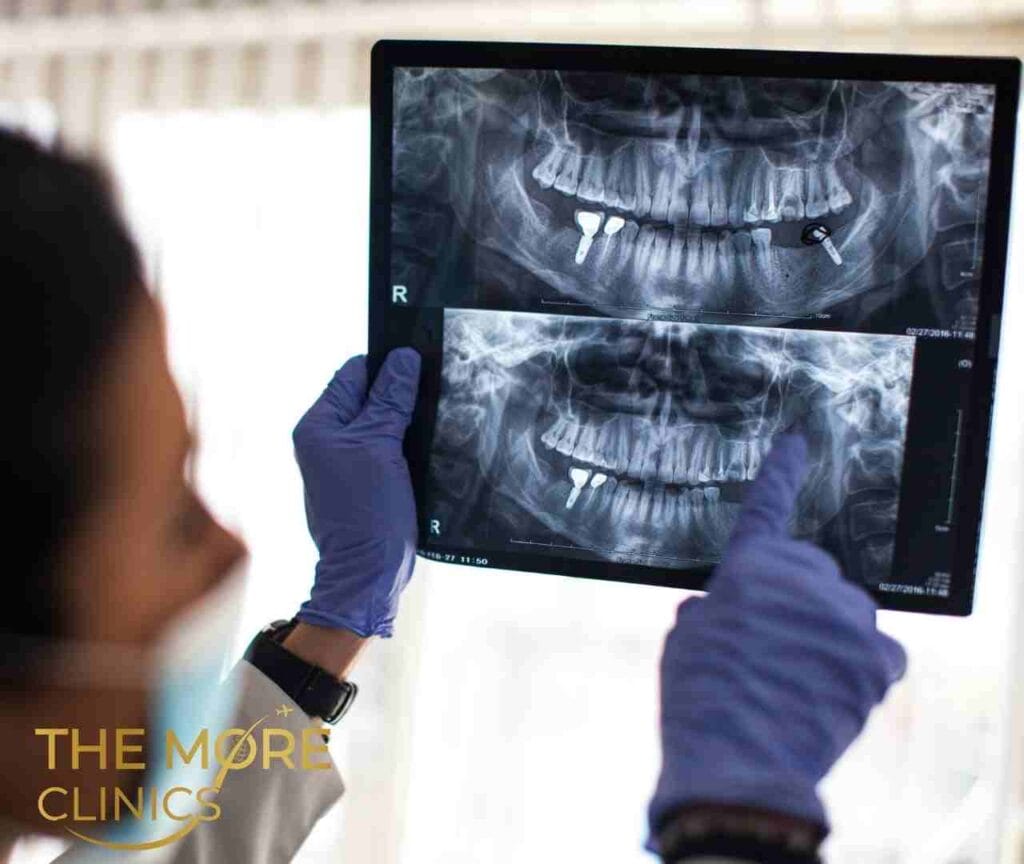
What happens when dental implant fails: Failed Implant Symptoms
While rare, a dental implant may fail due to improper healing, infection, or other factors. If you experience any failed dental implant symptoms, it’s essential to seek immediate dental care. Some common signs of implant failure include:
- Pain or discomfort around the implant area
- Swelling or inflammation
- Loosening of the implant
- Difficulty chewing or biting
- Bad taste or odor in the mouth
In some cases, failed dental implants may not show any obvious signs, which is why routine check-ups with your dentist are crucial. During these visits, your dentist will examine your oral health and monitor the stability and integrity of your
If you experience failed dental implant symptoms, it’s essential to seek immediate assistance from your dentist. Early intervention can save the implant and prevent further complications.
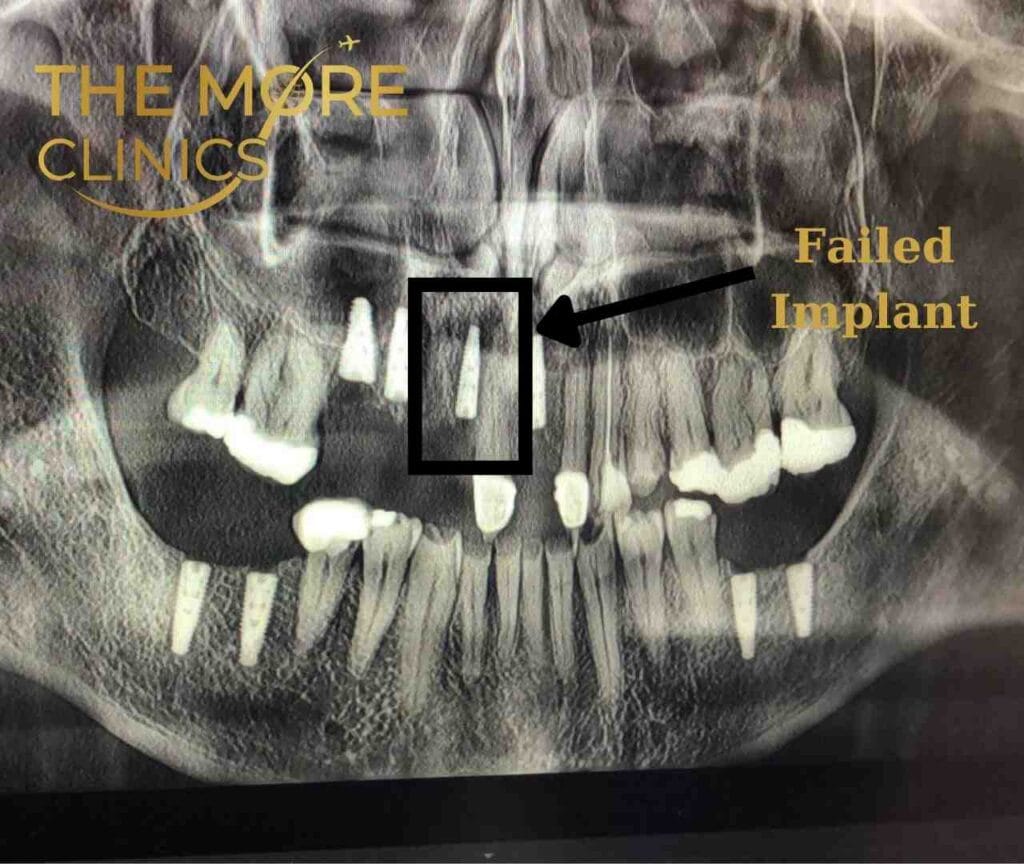
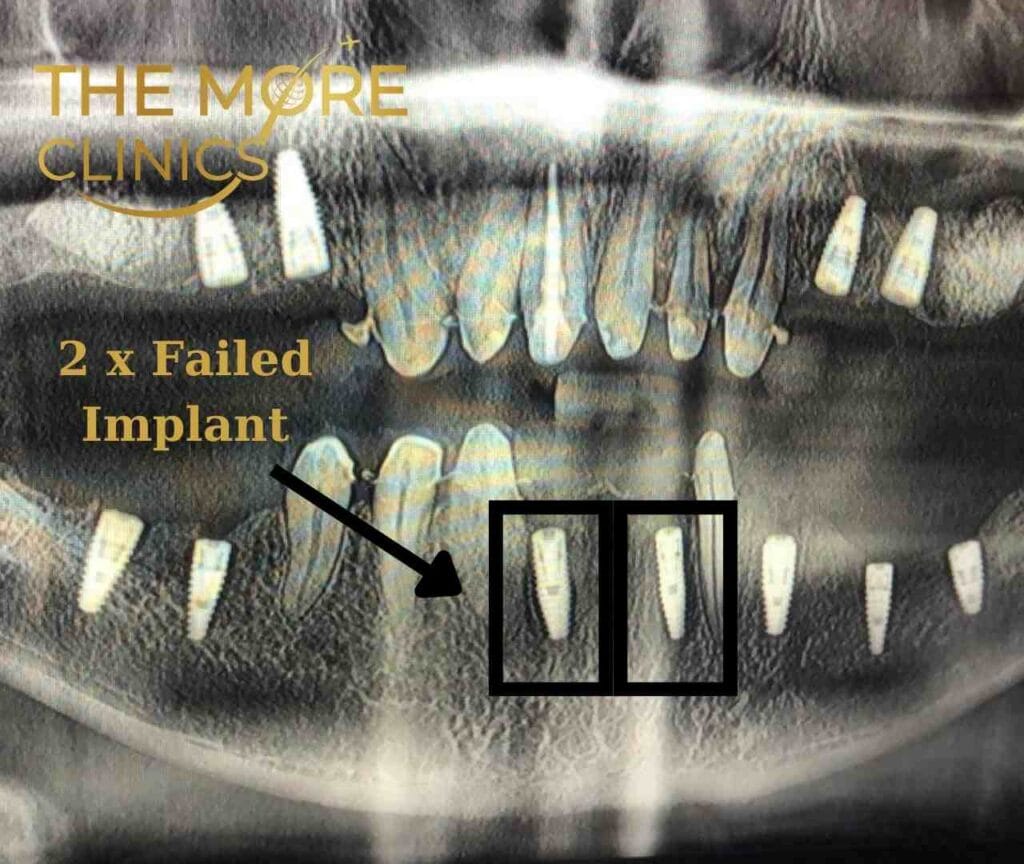
Types of Dental Implants and Their Longevity
There are different types of dental implants, depending on the specific clinical needs of the patient. The type of implant you choose can influence its durability.
1. Endosteal Implants
- These are the most common type and look like small screws or cylinders.
- Placed directly into the jawbone using a surgical procedure, they fuse with the bone over time.
- With proper care, endosteal implants can last a lifetime. However, the crown may still require replacement after 15–20 years.
2. Subperiosteal Implants
- Ideal for people with insufficient jawbone who cannot or do not wish to undergo bone grafting procedures.
- Placed under the gum but on top of the jawbone.
- While durable, they might have a slightly shorter lifespan compared to endosteal implants due to their attachment on the bone’s surface rather than deep integration.
3. Mini Dental Implants (MDIs)
- Narrower and less invasive, often used to stabilize dentures or replace smaller teeth.
- MDIs can typically last just as long as standard implants, although there is limited long-term research to compare both options.
- Note: There is limited research on the long-term success of mini dental implants.
Failed Dental Implant Options to Treatment
If your dental implant fails, it’s important to remember that solutions are available to address the issue and restore your dental health:
Implant Removal: In cases where the implant is failing due to infection, movement, or other complications, your dentist can safely remove it using local anesthesia. After an appropriate healing period, you may be eligible to receive a new implant, provided sufficient bone support is present.
Bone Graft: When bone loss is a contributing factor to implant failure, a bone graft may be necessary to regenerate and strengthen the tissue. Bone grafts can significantly improve the chances of success for subsequent implants, allowing for better stability and integration.
Alternative Tooth Replacements: If replacing the implant isn’t a viable option, there are other effective ways to restore both functionality and aesthetics. Dental bridges can fill the gap left by a missing tooth, using surrounding teeth for support. Dentures, either partial or full, offer another solution, providing a removable option that can improve your bite and smile.
Zygomatic Implants: In situations where there is severe bone loss in the upper jaw, zygomatic implants may be an option. These longer implants are anchored into the cheekbone (zygoma) for support and can successfully replace missing teeth without the need for bone grafting.
How to Maximize Your Dental Implants’ Lifespan
A single implant or full mouth dental implants are an investment in your oral health and confidence. To ensure your implant lasts a lifetime:
- Follow your dentist’s aftercare instructions diligently.
- Maintain excellent oral hygiene habits.
- Avoid smoking and minimize alcohol consumption.
- Address any teeth-grinding habits with a night guard.
- Regularly visit your dentist for checkups and professional cleanings.
If you need further assistance read our Aftercare Guide to Prevent Failed Implants
Last Words from the More Clinics
Dental implants offer a permanent solution for anyone looking to replace missing teeth. While proper care and certain precautions are essential, many patients can enjoy the benefits of their implants for decades—or even a lifetime. If you’re considering dental implants, consult with an experienced implant surgeon to determine the best option tailored to your unique needs. A skilled professional can guide you through the process, from implant evaluation to lifelong maintenance tips.
At the More Clinics, our team is dedicated to providing insightful information and reassurance throughout your dental journey. Whether you are just beginning to explore the possibility of implants or are seeking advanced solutions, our experts are ready to support you every step of the way. Please get in touch to book your free consultation today!

